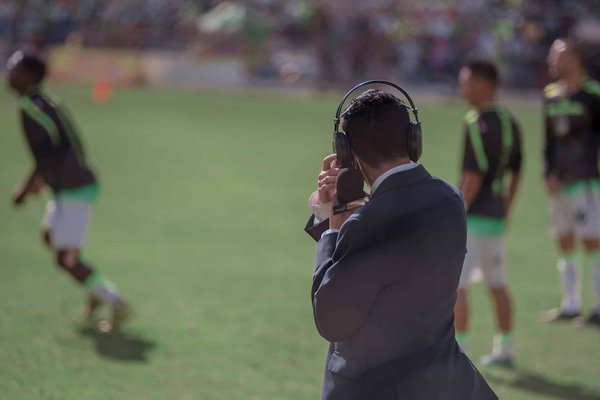sports
The ethics of sports journalism : balancing reporting and fandom
A
admin
January 25, 2024
3 min read
In the world of sports journalism, the relationship between the fans, the media, and the athletes or teams they support can often be a complex one. The role of a sports journalist is not merely to relay the events of a game or the latest team news but also to maintain a level of professional ethics. They are constantly balancing fan interest with the need for accurate reporting, and occasionally, they must grapple with their own fandom. In this article, we will navigate the ethical considerations, potential conflicts of interest, and practices that sports journalists must adhere to in their profession.
Navigating Ethical Standards
Every experienced journalist is aware of the potential conflicts of interest that could arise in their reporting. But in sports journalism, the stakes are arguably higher. Fans are not just passive consumers of news; they are emotionally invested in their teams and athletes. They crave stories that will fuel their passion, and a journalist’s personal biases can often seep into their work.
As sports journalists, you should strive for objectivity and impartiality, even when covering your favorite team. Be transparent about your preferences, but ensure that it doesn’t color your reporting. The integrity of your profession is at stake. Always check your sources, verify the facts, and be accurate in your representation of events. Conflicts of interest should be handled with utmost professionalism and transparency.
The Influence of Social Media
The rise of social media has profoundly impacted the sports industry, and consequently, sports journalism. Today, athletes share their stories directly with fans on platforms like Instagram and Twitter, bypassing traditional media. This shift has presented new ethical challenges for sports journalists.
As a sports journalist, you should be careful about how you engage with athletes and teams on social media. Avoid favoritism or explicit support for a particular team, which could undermine your credibility. Use these platforms wisely, as tools for gathering information and communicating with your audience, but always remember your ethical obligations.
The Role of the Sports Journalist
The role of a sports journalist is not just to report facts and figures, but also to tell stories. Fans are interested in the behind-the-scenes narratives, the struggles, and triumphs of their favorite athletes. As journalists, you have the power to shape these stories and the responsibility to do so ethically.
Remember, you are not merely a fan; you are a professional. While passion and enthusiasm for the sport can enrich your reporting, it should never compromise your journalistic integrity. Your duty is to present an accurate and fair representation of events, regardless of personal interest or bias.
Balancing Fandom and Professionalism
To be a sports journalist, you must strike a delicate balance between being a fan and a professional. It can be challenging, with the thrill of the game and the passion of the fans often blurring the lines between personal involvement and professional detachment.
Yet, it is crucial to maintain this balance to preserve the integrity of your profession. Being aware of potential conflicts of interest, adhering to ethical standards, and recognizing the influence of social media are all crucial aspects of this balance. Always remember that as a sports journalist, your loyalty lies with the truth, regardless of your fandom.
In conclusion, the ethics of sports journalism requires a delicate dance between reporting and fandom. The professional responsibilities of delivering accurate, balanced, and fair news should always supersede personal biases and passions. By adhering to ethical practices and maintaining a clear division between personal interests and professional duties, sports journalists can continue to enrich the sports industry with their essential work.
sports
View all articles sports →
